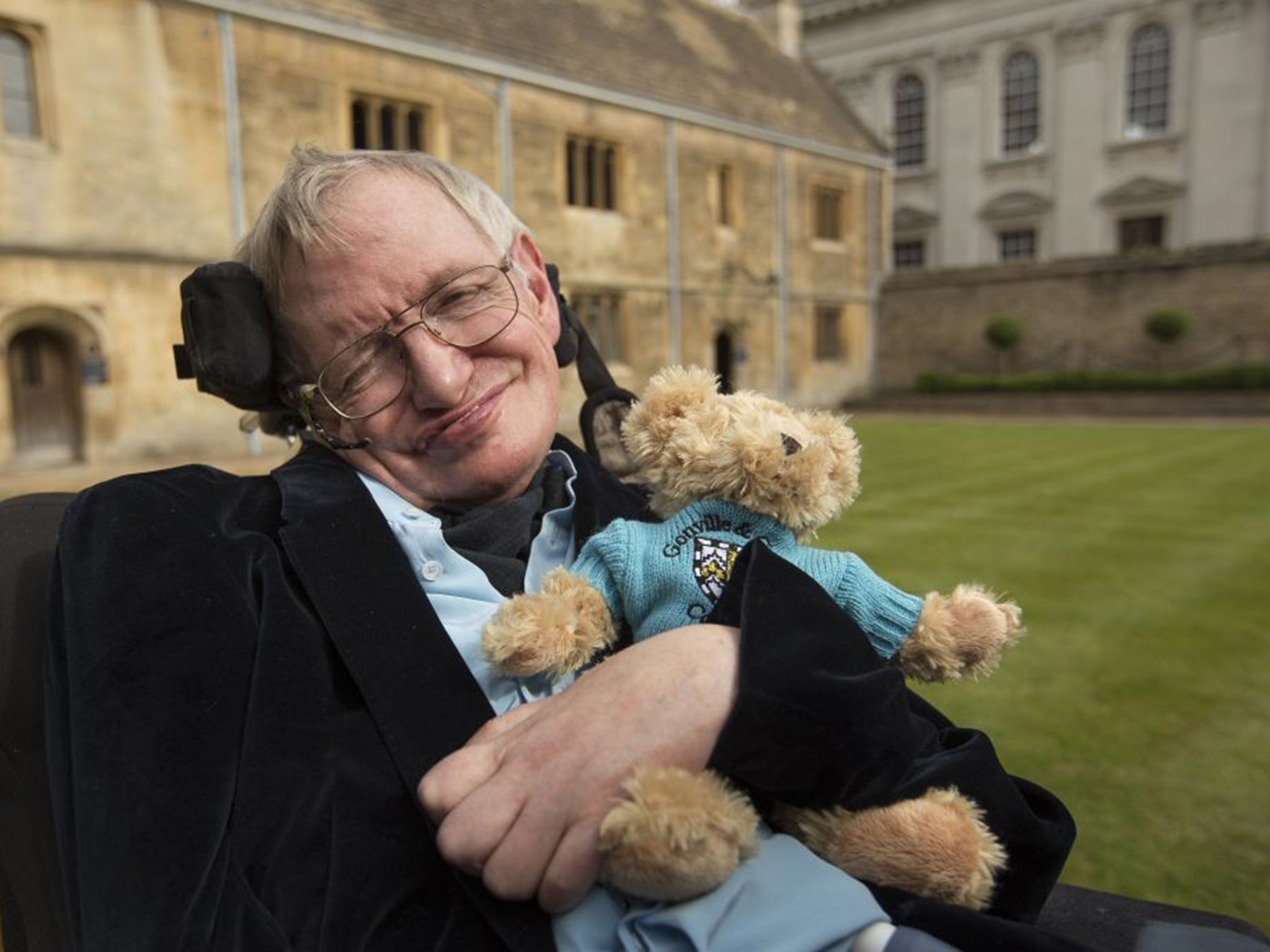Stephen Hawking: 'I'd consider assisted suicide'
The professor of physics has said that denying terminally ill people the right to die is 'the ultimate indignity'

Your support helps us to tell the story
This election is still a dead heat, according to most polls. In a fight with such wafer-thin margins, we need reporters on the ground talking to the people Trump and Harris are courting. Your support allows us to keep sending journalists to the story.
The Independent is trusted by 27 million Americans from across the entire political spectrum every month. Unlike many other quality news outlets, we choose not to lock you out of our reporting and analysis with paywalls. But quality journalism must still be paid for.
Help us keep bring these critical stories to light. Your support makes all the difference.
Stephen Hawking has said he would consider assisted dying if he became a "burden" to his family.
In an interview with comic Dara Ó Briain, Hawking said that people should have the right to end their own lives.
Hawking, who has motor neurone disease, says he would consider ending his own life if he was struggling.
"I would consider assisted suicide only if I were in great pain or felt I had nothing to contribute, but was just a burden to those around me," he told Ó Briain. The Telegraph reports that the interview took place as part of a new BBC programme.
The renowned physicist, who has advanced the theories of relativity and quantum mechanics, is largely paralysed from his illness. He communicates with a speech-generating device attached to a single cheek muscle.
Hawking added he's not planning on giving up any time soon, saying: "I am damned if I’m going to die before I have unravelled more of the universe."
Speaking of the hardships of living with motor neurone disease, Hawking said it can be lonely not being able to communicate in the same way as many other people.
"At times I get very lonely because people are afraid to talk to me or don’t wait for me to write a response," he said.
"I’m shy and tired at times. I find it difficult to talk to people I don’t know."
Hawking has previously spoken about the dignity of disabled people. In March, Hawking said that "not being able to communicate is one of the most frightening and isolating aspects of living with motor neurone disease."
He added: "Everyone with MND should be able to access speech and language therapy and the range of communication equipment technology which is out there. No one should die without a voice."
The physicist was the subject of Oscar-winning film The Theory of Everything, which starred Eddie Redmayne.
Subscribe to Independent Premium to bookmark this article
Want to bookmark your favourite articles and stories to read or reference later? Start your Independent Premium subscription today.
Join our commenting forum
Join thought-provoking conversations, follow other Independent readers and see their replies
Comments